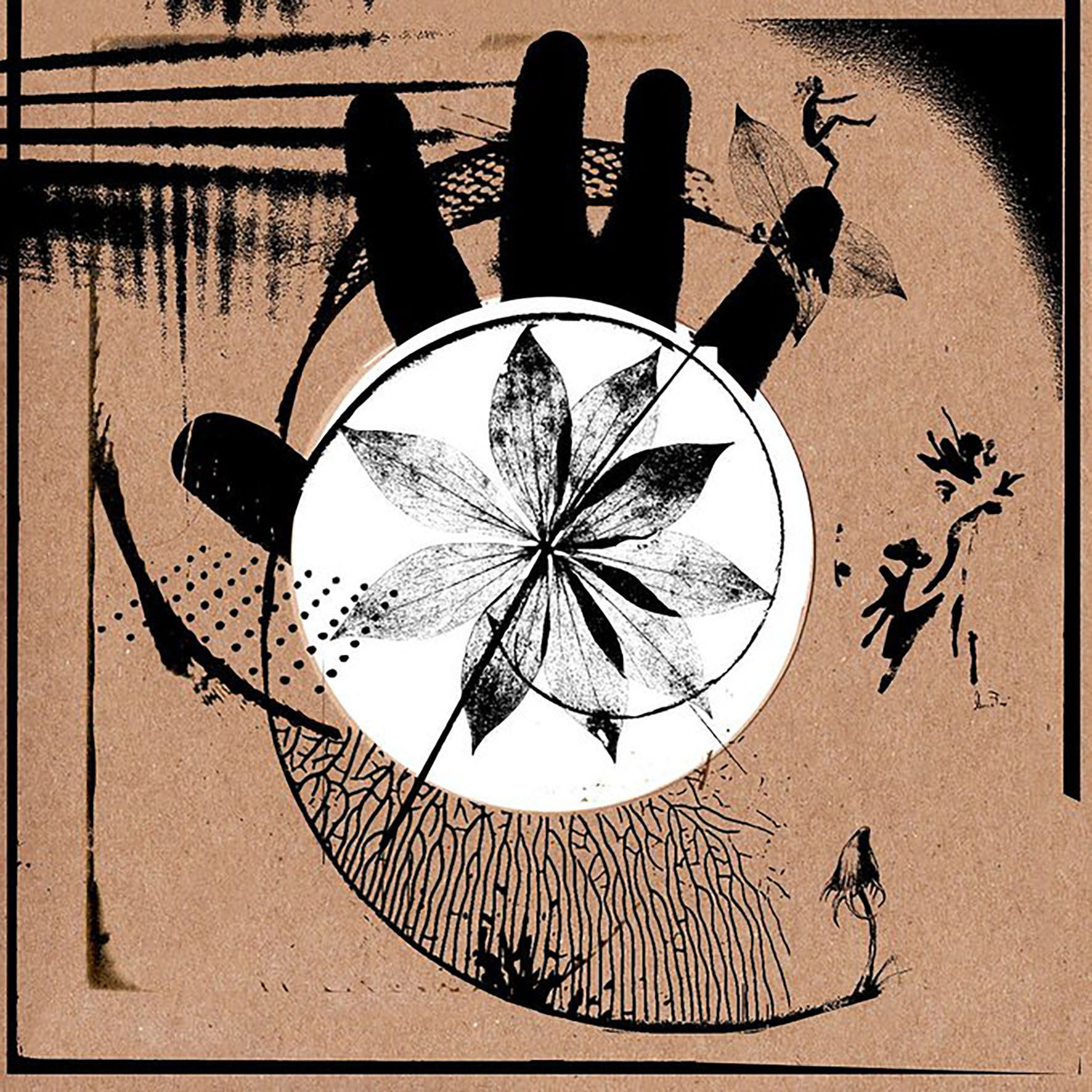 There are a number of fascinating small labels exploring unusual niches these days, which I suppose makes the current era something of a golden age for curious outsiders with deeply arcane interests. My favorite imprint in that vein is unsurprisingly the "open-ended research project exploring the vernacular arcana of Great Britain and beyond" that is Folklore Tapes, as their major releases exist on a plane all their own, elegantly and entertainingly blurring the lines between art, history, folklore, scholarship, music, poetry, visual art and whatever other compelling threads catch their fancy. This latest opus is characteristically another glorious cultural artifact, which is hardly surprising given the fertile nature of the subject. Nevertheless, the label have still outdone themselves, as Swifter than the Moon's Sphere celebrates the hidden history of fairy folk with an eclectic array of fairy-inspired spoken word pieces and sound art, as well as a deep and endearingly witty scholarly dive into fairy class structure and how shifting views of the supernatural mirror our society. In fact, this is one of the rare albums in which the liner notes (courtesy of Jez Winship) are every bit as compelling as the actual music ("there is something oddly impotent about the fairy aristocracy"). Beyond that, Swifter than the Moon's Sphere is a welcome return to familiar territory for the label, bringing together an inspired host of known, unknown, obscure, and enigmatic artists for a freewheeling tour de force of supernaturally charged and backwards-looking folk horror and rural psychedelia.
There are a number of fascinating small labels exploring unusual niches these days, which I suppose makes the current era something of a golden age for curious outsiders with deeply arcane interests. My favorite imprint in that vein is unsurprisingly the "open-ended research project exploring the vernacular arcana of Great Britain and beyond" that is Folklore Tapes, as their major releases exist on a plane all their own, elegantly and entertainingly blurring the lines between art, history, folklore, scholarship, music, poetry, visual art and whatever other compelling threads catch their fancy. This latest opus is characteristically another glorious cultural artifact, which is hardly surprising given the fertile nature of the subject. Nevertheless, the label have still outdone themselves, as Swifter than the Moon's Sphere celebrates the hidden history of fairy folk with an eclectic array of fairy-inspired spoken word pieces and sound art, as well as a deep and endearingly witty scholarly dive into fairy class structure and how shifting views of the supernatural mirror our society. In fact, this is one of the rare albums in which the liner notes (courtesy of Jez Winship) are every bit as compelling as the actual music ("there is something oddly impotent about the fairy aristocracy"). Beyond that, Swifter than the Moon's Sphere is a welcome return to familiar territory for the label, bringing together an inspired host of known, unknown, obscure, and enigmatic artists for a freewheeling tour de force of supernaturally charged and backwards-looking folk horror and rural psychedelia.
Like most (or all) great Folklore Tapes compilations, Swifter than the Moon's Sphere features an inspired cast of unique collaborations, house bands, unfamiliar names, and familiar names in unfamiliar roles. In the "familiar" category, we have the usual Hood Faire contingent, as well as artists like Ian Humberstone and Bridget Hayden. All are characteristically strange and wonderful, but Humberstone's "Swinging Lamps in Starlit Globes" stands as a particular highlight, resembling an eerily sliding and smeared underwater vibraphone performance accompanied by a chorus of psychedelic frogs. One of the main pleasures of a great Folklore Tapes compilation is being surprised and delighted from more unexpected corners, however, and this one is particularly rich in that regard. In fact, the opening "Genuine Leaf Fairy Sighted in English Woodland" (credited enigmatically to "DBH") is the first of many such pleasures, as harmonic sparks spray from shivering, tense strings that fitfully resolve into snatches of gorgeous melody. Brian Campbell, Peter Smyth and Carl Turney's "Requiem for the Lost" is another favorite, resembling a warm and wistful strain of post-rock backing a spacy, swooning, and dreamlike swirl of layered psychedelia.
Elsewhere, historian Jennifer Reid sings a haunting folk ballad (“Boghart Hall Clough”) about a farmer who fails to outwit a household boggart, while Emily Oldfield brings a lovely musicality to her poetry reading and Sarah Lundy goes post-everything with a spoken word piece that feels like she is casting a terrible hex on me from inside an echo chamber. Obviously, some ideas work better than others, but the artists are invariably hampered more by the constraining brevity of these pieces than by lack of inspiration (most pieces are only around two minutes long). That hurdle admittedly posed a challenge for individual artists more accustomed to working in more expansive circumstances, but the album as a whole benefits nicely from that approach, as it is a playfully shapeshifting and immersive experience that seldom wanders off course. Moreover, I will probably be quoting the liner notes for the rest of my life ("an emphasis on the grotesque and the foppishly foolish" and "this persistence of hope in the face of experience is oddly admirable" are current favorites). In fact, I was especially struck by the line "the magic power of invisibility results in fairies being more often heard or felt…than seen," as everyone involved seemed admirably devoted to getting the elusive haunted "feel" of a good fairy legend just right (no matter how much academic rigor they brought to the table). I am tempted to say that Folklore Tapes consistently offers one master class after another on how to make a meaningful, memorable, and compelling compilation, but releases like Swifter than the Moon's Sphere actually shoot past that mark to feel more like I just stumbled upon a dust-covered grimoire in a mysterious bookstore that I had never noticed before. This is an instant classic.
Samples can be found here.
Read More

